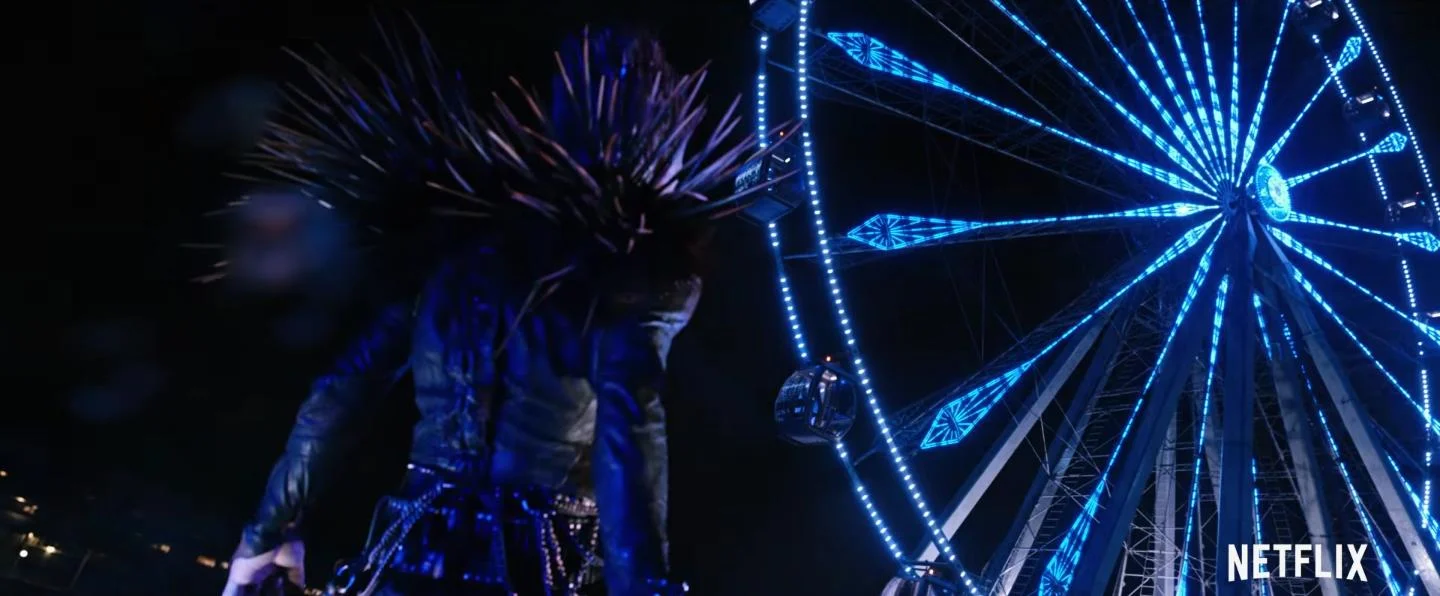Brief Synopsis: A demonic spirit named Ryuk drops his “Death Note” in the human plane, where Light, a highly intelligent/brooding teenager, finds it outside his high school. He quickly discovers that the Death Note has the power to kill anyone whose name is written in the pages, provided the writer knows their name and face. Light dons the moniker “Kira” to become a god of justice, inscribing the names of international criminals, trying to actualize a new world order. Obviously, this catches the attention of, well, everyone — most of all a mysterious figure called L., who engages in a global chess match to capture Kira.
Death Note may not be the most boring or mind-numbing film in this category, but by far, it is the most — *wait for it…* — soulless. Did a part of me choose Death Note solely for the abundance of death-related puns, ripe for the making? … Absolutely not. Never. No. No. I would never tarnish the good name of the Pappie Awards just to play the part of grim reaper for a movie that causes all hope to be abandoned for the innocent lives who enter beyond the gates of Netflix’s shining red “N” logo, which bloodies the very name of the beloved anime series. That would be uncouth.
Netflix’s Death Note (2017) is very, very, very loosely based off the horror/thriller manga (2003-06) and anime (2006-07) series. The premise is fascinating, and the anime series — while not perfect — is disturbing and lively, with cunning characters and a wickedly thrilling pulse. By comparison, Netflix’s adaptation has a massive heart attack. Other people online have done a much better, more in-depth explanation for why the characters are all terrible in Netflix’s film, but the summary is this: Light changes from a cold, calculating intellectual in the manga/anime to a whiny, angsty Nicholas Sparks boyfriend in the movie. Yes, for whatever reason, the film adds some random girl named Mia to the plot and makes their romance the central focus. What starts as a big-picture moral quandary about the death penalty and/or vigilante justice, digresses into a teenage spat between hell-crossed lovers. I guess it wouldn’t have been such a train wreck if their relationship somehow produced a sinister tone or intriguing ethical message, but instead, all Light and Mia give the audience is dialogue as repetitive as being eaten by Cerberus in the 3rd Circle of Hell.
There’s no life; there’s no energy! It feels as unnecessary as choosing between a pen or a pencil while writing someone’s name in the Death Note. Which is all the more disappointing considering Netflix marketed Death Note (2017) as different than previous live-action anime adaptations — as a streaming service, Netflix purports themselves to be independent risk-takers, acting outside the blockbuster-confined Hollywood scene. But I suppose the writing was on the wall — or notebook, in this case. As soon as I saw that Light’s hairstyle in the movie looked like a fluffed-up honey badger fur, I knew it was a lost cause.

